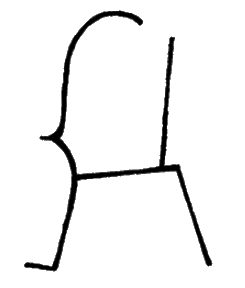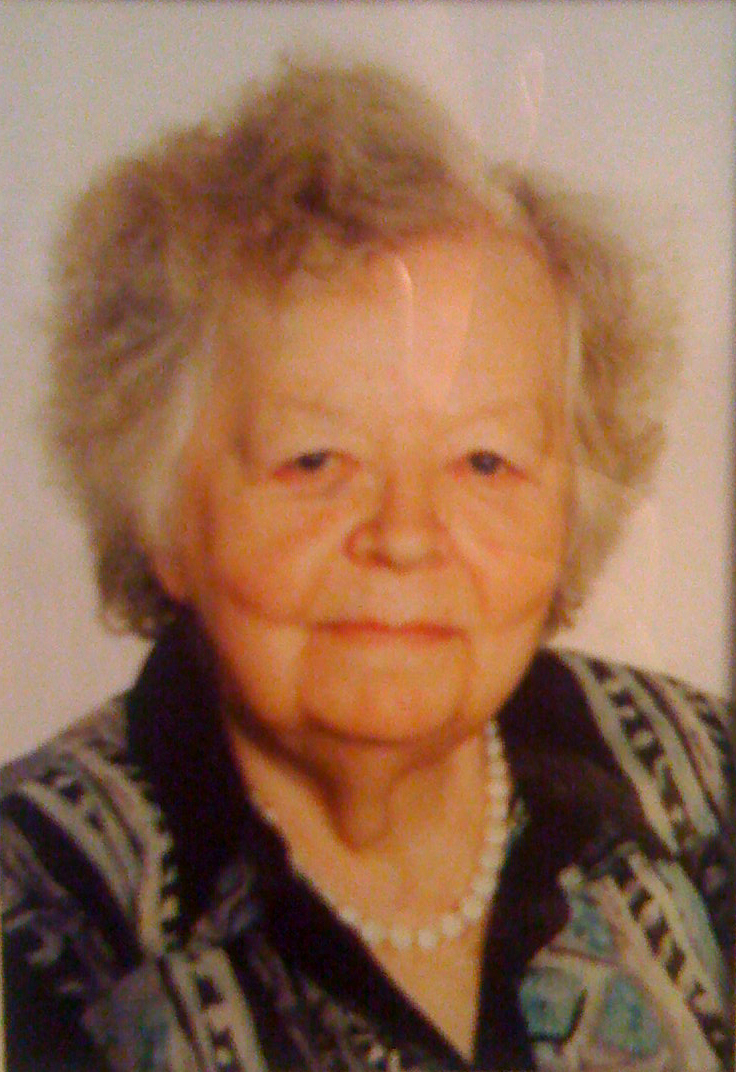|
Mo-ho Sad
Bagha Shad ( otk, 𐰉𐰍𐰀𐱁𐰑, translit=baγa šad, ) was a Göktürk ''shad'' or general of the early 7th century CE. He was a close kinsman and subject of the Western Göktürk khagan, Tong Yabghu. Bagha Shad was probably the father of Böri Shad and may have been the yabghu or prince of the Khazars. He is referred to in Chinese sources as having sojourned in China in 618–626, possibly as Tong Yabghu's emissary to the Tang emperor. Thereafter he disappears from the historical record.Christian 299 at n. 26. References *Artamonov, Mikhail. ''Istoriya Khazar''. Leningrad, 1962. * Christian, David. ''A History of Russia, Mongolia and Central Asia.'' Blackwell, 1999. *Golden, Peter Benjamin. ''Introduction to the History of the Turkic Peoples.'' Wiesbaden: Harrasowitz, 1992. *Gumilev, Lev Lev Nikolayevich Gumilyov (russian: Лев Никола́евич Гумилёв; 1 October 1912 – 15 June 1992) was a Soviet historian, ethnologist, anthropologist and trans ... [...More Info...] [...Related Items...] OR: [Wikipedia] [Google] [Baidu] |
Ashina Tribe
The Ashina (; Middle Chinese: (Guangyun) ), were a Turkic speaking tribe and the ruling dynasty of the Göktürks. This clan rose to prominence in the mid-6th century when the leader, Bumin Qaghan, revolted against the Rouran Khaganate. The two main branches of the family, one descended from Bumin and the other from his brother Istämi, ruled over the eastern and western parts of the Göktürks, Göktürk confederation, respectively. Origin Primary Chinese sources ascribed different origins to the Ashina tribe. Ashina were first attested to 439, as reported by the ''Book of Sui'': on the 18th day of the 10th month, the Tuoba ruler Emperor Taiwu of Northern Wei overthrew Juqu Mujian of the Northern Liang in eastern Gansu,Wei Zheng et al., ''Book of Sui'', :zh:t:隋書/卷84, Vol. 84. and 500 Ashina families fled northwest to the Rouran Khaganate near Gaochang. According to the ''Book of Zhou'', ''History of the Northern Dynasties'', and New Book of Tang, the Ashina clan was a co ... [...More Info...] [...Related Items...] OR: [Wikipedia] [Google] [Baidu] |
China
China, officially the People's Republic of China (PRC), is a country in East Asia. It is the world's most populous country, with a population exceeding 1.4 billion, slightly ahead of India. China spans the equivalent of five time zones and borders fourteen countries by land, the most of any country in the world, tied with Russia. Covering an area of approximately , it is the world's third largest country by total land area. The country consists of 22 provinces, five autonomous regions, four municipalities, and two Special Administrative Regions (Hong Kong and Macau). The national capital is Beijing, and the most populous city and financial center is Shanghai. Modern Chinese trace their origins to a cradle of civilization in the fertile basin of the Yellow River in the North China Plain. The semi-legendary Xia dynasty in the 21st century BCE and the well-attested Shang and Zhou dynasties developed a bureaucratic political system to serve hereditary monarchies, or dyna ... [...More Info...] [...Related Items...] OR: [Wikipedia] [Google] [Baidu] |
Svetlana Pletneva
Svetlana Alexandrovna Pletneva (also spelled Pletnyeva and Pletnyova russian: Светлана Александровна Плетнева) (April 1, 1926 in Vyatka- 20 November 2008 in Moscow) was a Russian and Soviet archaeologist and historian. Like Lev Gumilev, she was a student of Mikhail Artamonov, although she discarded many of the former's theories as mere speculations. She won the USSR State Prize in 1986. Pletneva is the author of numerous books on Eurasian nomads, particularly the Khazars. Honours and awards *State Prize of the USSR *Order of the Badge of Honour *Medal "For Labour Valour" *Medal "For Distinguished Labour" The Medal "For Distinguished Labour" (russian: Медаль «За трудовое отличие») was a civilian labour award of the Soviet Union bestowed to especially deserving workers to recognise and honour high performances in labour o ... External linksPletneva's pageon the Institute for Archeology website 1926 births 20 ... [...More Info...] [...Related Items...] OR: [Wikipedia] [Google] [Baidu] |
Gumilev, Lev
Lev Nikolayevich Gumilyov (russian: Лев Никола́евич Гумилёв; 1 October 1912 – 15 June 1992) was a Soviet historian, ethnologist, anthropologist and translator. He had a reputation for his highly unorthodox theories of ethnogenesis and historiosophy. He was an exponent of Eurasianism. Life Gumilyov's parents, two prominent poets Nikolay Gumilyov and Anna Akhmatova, divorced when he was 7 years old and his father was executed by the Cheka when he was just 9. Gumilyov spent much of his youth, from 1938 until 1956, in Soviet labor camps. He was arrested by the NKVD in 1935 and released, but rearrested and sentenced to five years in 1938. Osip Mandelstam's " Stalin Epigram" is said to have played a role in his arrest. After release, he joined the Red Army and took part in the Battle of Berlin of 1945. However, he was arrested again in 1949 and sentenced to ten years in prison camps. Aiming to secure his freedom, Akhmatova published a dithyramb to Joseph ... [...More Info...] [...Related Items...] OR: [Wikipedia] [Google] [Baidu] |
Golden, Peter Benjamin
Peter Benjamin Golden (born 1941) is an American historian who is Professor Emeritus of History, Turkish and Middle Eastern Studies at Rutgers University. He has written many books and articles on Turkic and Central Asian Studies, such as ''An introduction to the history of the Turkic peoples''. Golden grew up in New York and attended Music & Art High School. He graduated from CUNY Queens College in 1963, before obtaining his M.A. and Ph.D. in History from Columbia University in 1968 and 1970, respectively. Golden also studied at the Dil ve Tarih – Coğrafya Fakültesi (School of Language and History – Geography) in Ankara (1967–1968). He taught at Rutgers University from 1969 until his retirement in 2012. He was Director of the Middle Eastern Studies Program (2008–2011) at Rutgers. He is an honorary member of the Türk Dil Kurumu and Kőrösi Csoma Society of Hungarian Orientalists and was a member of the School of Historical Studies at the Institute for Advanced Stud ... [...More Info...] [...Related Items...] OR: [Wikipedia] [Google] [Baidu] |
David Christian (historian)
David Gilbert Christian (born June 30, 1946), a historian and scholar of Russian history, has become notable for teaching and promoting the emerging discipline of Big History. In 1989 he began teaching the first course on the topic, examining history from the Big Bang to the present using a multidisciplinary approach with the assistance of scholars in diverse specializations from the sciences, social sciences, and humanities. Big History frames human history in terms of cosmic, geological, and biological history. Christian is credited with coining the term ''Big History'' and he serves as president of the ''International Big History Association''. Christian's best-selling ''Teaching Company'' course entitled ''Big History'' caught the attention of philanthropist Bill Gates, who is funding Christian's efforts to develop a program to bring the course to secondary-school students worldwide. Early life Christian was born in Brooklyn, New York, to British and American parents. He gr ... [...More Info...] [...Related Items...] OR: [Wikipedia] [Google] [Baidu] |
Artamonov, Mikhail
Mikhail Illarionovich Artamonov (russian: Михаил Илларионович Артамонов; in the village of Vygolovo, Tver Governorate, now Molokovsky District, Tver Oblast - July 31, 1972 in Leningrad ) was a and historian and , who came to be recognized as the founding father of modern |
Tang Dynasty
The Tang dynasty (, ; zh, t= ), or Tang Empire, was an Dynasties in Chinese history, imperial dynasty of China that ruled from 618 to 907 AD, with an Zhou dynasty (690–705), interregnum between 690 and 705. It was preceded by the Sui dynasty and followed by the Five Dynasties and Ten Kingdoms period. Historians generally regard the Tang as a high point in Chinese civilization, and a Golden age (metaphor), golden age of cosmopolitan culture. Tang territory, acquired through the military campaigns of its early rulers, rivaled that of the Han dynasty. The House of Li, Lǐ family () founded the dynasty, seizing power during the decline and collapse of the Sui Empire and inaugurating a period of progress and stability in the first half of the dynasty's rule. The dynasty was formally interrupted during 690–705 when Empress Wu Zetian seized the throne, proclaiming the Zhou dynasty (690–705), Wu Zhou dynasty and becoming the only legitimate Chinese empress regnant. The devast ... [...More Info...] [...Related Items...] OR: [Wikipedia] [Google] [Baidu] |
Chinese Language
Chinese (, especially when referring to written Chinese) is a group of languages spoken natively by the ethnic Han Chinese majority and many minority ethnic groups in Greater China. About 1.3 billion people (or approximately 16% of the world's population) speak a variety of Chinese as their first language. Chinese languages form the Sinitic branch of the Sino-Tibetan languages family. The spoken varieties of Chinese are usually considered by native speakers to be variants of a single language. However, their lack of mutual intelligibility means they are sometimes considered separate languages in a family. Investigation of the historical relationships among the varieties of Chinese is ongoing. Currently, most classifications posit 7 to 13 main regional groups based on phonetic developments from Middle Chinese, of which the most spoken by far is Mandarin (with about 800 million speakers, or 66%), followed by Min (75 million, e.g. Southern Min), Wu (74 million, e.g. Shangh ... [...More Info...] [...Related Items...] OR: [Wikipedia] [Google] [Baidu] |
Tengrism
Tengrism (also known as Tengriism, Tengerism, or Tengrianism) is an ethnic and old state Turkic peoples, Turko-Mongolic peoples, Mongolic religion originating in the Eurasian Steppe, Eurasian steppes, based on folk shamanism, animism and generally centered around the titular sky god Tengri. Tengri was not considered a deity in the usual sense, but a personification of the universe. The purpose of life is, according to the Tengris view, to live in harmony with the universe. It was the prevailing religion of the Turks, Mongols, Bulgars, Xiongnu, Huns and possibly the Hungarians, and the state religion of several medieval states: First Turkic Khaganate, Western Turkic Khaganate, Eastern Turkic Khaganate, Old Great Bulgaria, First Bulgarian Empire, Volga Bulgaria, and Khazaria, Eastern Tourkia (Khazaria), Mongol Empire. In ''Irk Bitig'', a ninth century manuscript on divination, Tengri is mentioned as (God of Turks). According to many academics, Tengrism was a predominantly polyth ... [...More Info...] [...Related Items...] OR: [Wikipedia] [Google] [Baidu] |
Khazars
The Khazars ; he, כּוּזָרִים, Kūzārīm; la, Gazari, or ; zh, 突厥曷薩 ; 突厥可薩 ''Tūjué Kěsà'', () were a semi-nomadic Turkic people that in the late 6th-century CE established a major commercial empire covering the southeastern section of modern European Russia, southern Ukraine, Crimea, and Kazakhstan. They created what for its duration was the most powerful polity to emerge from the break-up of the Western Turkic Khaganate. Astride a major artery of commerce between Eastern Europe and Western Asia, Southwestern Asia, Khazaria became one of the foremost trading empires of the Early Middle Ages, early medieval world, commanding the western March (territory), marches of the Silk Road and playing a key commercial role as a crossroad between China, the Middle East and Kievan Rus'. For some three centuries (c. 650–965) the Khazars dominated the vast area extending from the Volga-Don steppes to the eastern Crimea and the northern Caucasus. Khazari ... [...More Info...] [...Related Items...] OR: [Wikipedia] [Google] [Baidu] |






